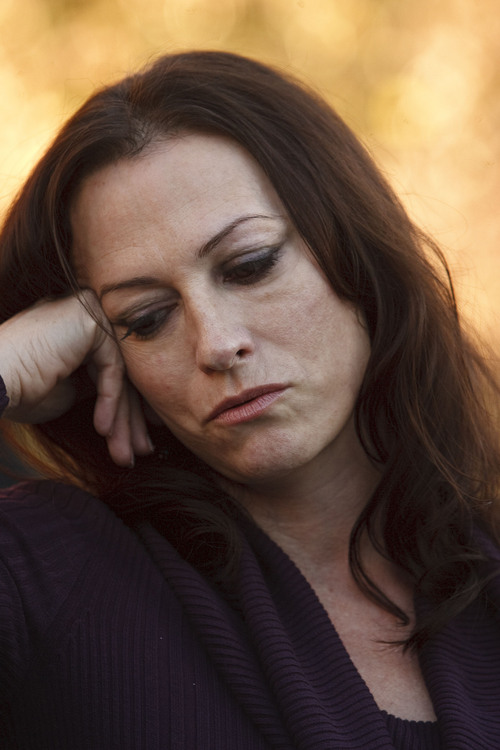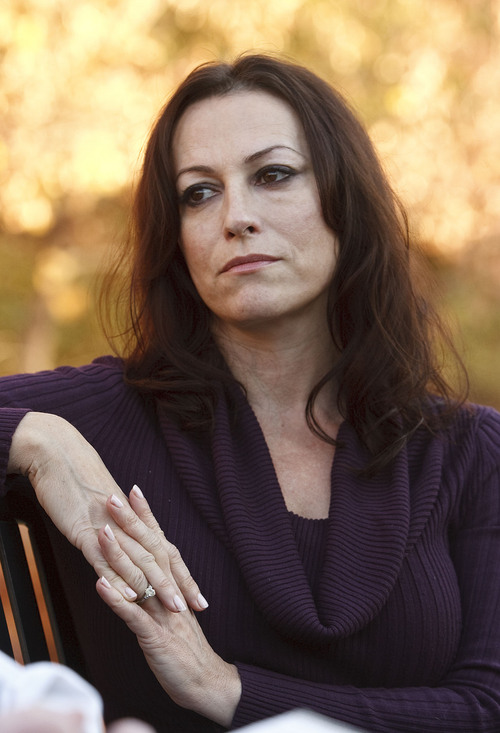This is an archived article that was published on sltrib.com in 2013, and information in the article may be outdated. It is provided only for personal research purposes and may not be reprinted.
Thirty-three years ago, Terry J. Mitchell and Karma Ingersol were terrified 15 year olds who watched their friends, two young black men, die in a Salt Lake City intersection after serial killer Joseph Paul Franklin fired his rifle from a weedy lot near Liberty Park.
Early Wednesday, Franklin, a white supremacist, was put to death in a Missouri prison for a separate 1977 murder near St. Louis.
For Mitchell and Ingersol, Franklin's execution ended years of searching — Mitchell for an answer to how Franklin became what he was, and Ingersol for someone to protect her.
Ingersol on Wednesday said news of the execution left her "going pretty good. Woke up this morning to some really good news."
Still, she said, "I feel almost guilty because I feel almost happy about him. But he will never, ever hurt anybody again with his nasty, horrible words.
"I actually feel a kind of a weight off. You shouldn't feel guilty about a person's death, but I'm just glad it's done. He's done."
Mitchell, who had spoken by telephone to Franklin in recent days, said she, too, was grateful the execution was over.
"There are waves, moments, when I start to feel like I'm falling. I just repeat, I am at peace."
The conversations, which Mitchell shared only bits of, involved Franklin explaining how he'd changed, found various forms of religious teaching and claimed to have come to a place of balance.
None of that erases the nature of his hatred and the many murders he committed. The Salt Lake City slayings of David Martin, 18, and Ted Fields, 20, were the last of eight murders for which Franklin was found guilty.
On Aug. 20, 1980, Ingersol, Mitchell, Martin and Fields had jogged around the park, stopping every now and again because they were laughing so hard.
"Ted was funny, just funny," Ingersol said. "He was tripping Dave, doing all kinds of crazy things. We were telling stories and starting rumors. We were halfway through the crosswalk and that's what happened."
The girls watched Martin and Fields die on the asphalt. Ingersol recalls Fields having saved their lives.
When Martin was shot, she and Fields tried to carry him to safety but then Fields was hit, looked at Ingersol and said, "Run, just run."
Franklin later said he targeted the two black men because they were with Ingersol, who is white, and Mitchell, whose family is of mixed races.
Both women vividly remember being called to testify during Franklin's Utah trials in state and federal courts.
Mitchell said her 15-year-old self stared Franklin down, sitting on her hands so he wouldn't see her shaking.
"I was just this pissed-off teenage girl who was so full of anger and rage for him that I felt he couldn't look me in the eye," she said.
Mitchell's parents, fearing for her life, sent her out of state. Ingersol, a high school sophomore, dropped out, started running away from home and doing drugs. She was 18 when she married her first husband, a union that lasted only two years. Her second marriage also didn't last.
"After that, there were lots of boyfriends for about 10 years. At about 30, she began living with another man and after several years married him, but now, she said, she's going through a third divorce.
"I do have a hard time maintaining relationships," she said.
Mitchell built a successful business, raised her daughters with her second husband and for 30 years left bits of rose quartz, candles and letters on a plaque honoring Fields and Martin in the corner of Liberty Park.
She also has explored spirituality, the nature of forgiveness and has fostered her own, often somewhat mystical, sensibilities.
Now, she said, "I'm not over this. Maybe [Franklin's death] will help me get over it. The last time I talked to him I was praying, visualizing white light.
"The reason I talked to him was to give him light so when he dies, he can go to a light," she said. "I can't tell you how grateful I am that it's over. There have been waves, moments, where I start to feel like I'm falling. But I just repeat, I am at peace."
And, she said, "one of the best things I did was hold my granddaughter for hours and hours, heart to heart."





